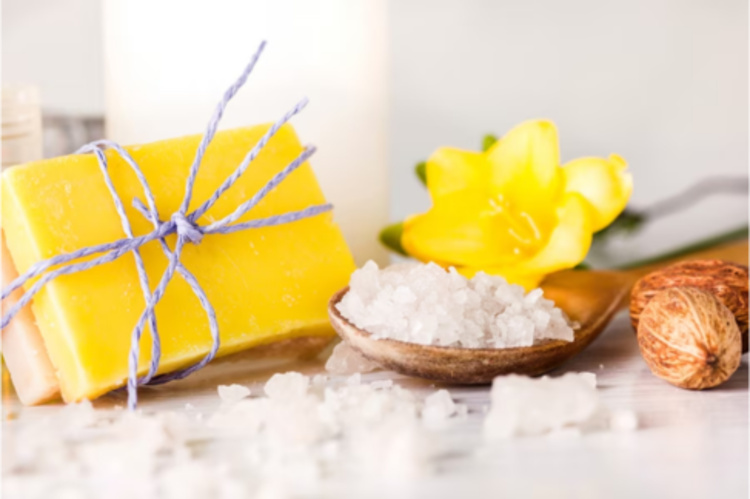Skin lightening has been a contentious topic in the beauty industry, often fraught with misconceptions and myths. Among the various products used for skin lightening, kojic acid soap stands out as a popular choice.
However, it has also been subject to numerous misconceptions. In this article, we’ll debunk some of the most common myths surrounding kojic acid soaps and shed light on the facts.
Myth 1: Kojic Acid Soaps Are Harmful to the Skin
One of the most prevalent myths surrounding kojic acid soaps is that they are harmful to the skin. This misconception likely stems from the term “acid,” which can evoke images of harsh chemicals. However, kojic acid is a natural substance derived from various fungi, including Aspergillus oryzae, and is known for its skin-lightening properties.
In reality, kojic acid works by inhibiting the production of melanin, the pigment responsible for skin coloration. When used in appropriate concentrations and formulations, kojic acid can be gentle on the skin and effectively lighten dark spots and hyperpigmentation.
Myth 2: Kojic Acid Soaps Can Lighten the Skin Overnight
Another common myth is that kojic acid soaps can produce overnight results. While kojic acid is indeed effective in lightening the skin, achieving significant results takes time and consistency. Like any skincare product, patience is key when using kojic acid soaps.
Results may vary depending on individual skin types and the severity of hyperpigmentation. It’s essential to use skin lightening soaps as directed and to incorporate them into a regular skincare routine for best results.
Myth 3: Kojic Acid Soaps Are Only Suitable for Certain Skin Types
Some people believe that kojic acid soaps are only suitable for specific skin types, such as oily or acne-prone skin. However, kojic acid can be beneficial for a wide range of skin types, including dry, sensitive, and combination skin.
It’s essential to choose a kojic acid soap that is formulated for your particular skin type and concerns. Additionally, individuals with sensitive skin may benefit from patch testing the product before incorporating it into their routine to ensure compatibility.
Myth 4: Kojic Acid Soaps Can Cause Skin Irritation
Concerns about skin irritation are common when it comes to using skincare products, especially those containing active ingredients like kojic acid. While it’s true that some individuals may experience mild irritation or sensitivity when using kojic acid soaps, this is not the case for everyone.
To minimize the risk of irritation, it’s essential to follow the manufacturer’s instructions and start with a lower concentration of kojic acid if you have sensitive skin. Additionally, using a moisturizer after washing with kojic acid soap can help keep the skin hydrated and reduce the likelihood of dryness or irritation.
Myth 5: Kojic Acid Soaps Are Unsafe for Long-Term Use
Some people believe that long-term use of kojic acid soaps can be harmful to the skin. However, when used properly and in moderation, kojic acid soaps are generally safe for long-term use.
As with any skincare product, it’s essential to monitor your skin’s response and discontinue use if you experience any adverse reactions. Additionally, incorporating other skincare products with complementary ingredients, such as antioxidants and sunscreen, can help enhance the effectiveness of kojic acid soaps and support overall skin health.
Conclusion
Kojic acid soaps are a popular choice for individuals looking to lighten dark spots and hyperpigmentation. Despite some common myths and misconceptions, kojic acid soaps can be safe and effective when used properly.
By debunking these myths and understanding the facts, individuals can make informed decisions about incorporating kojic acid skin whitening soaps into their skincare routines.

